#watermelon steven icons
Text
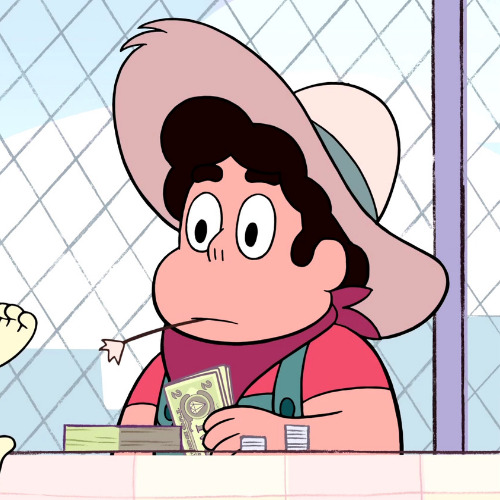
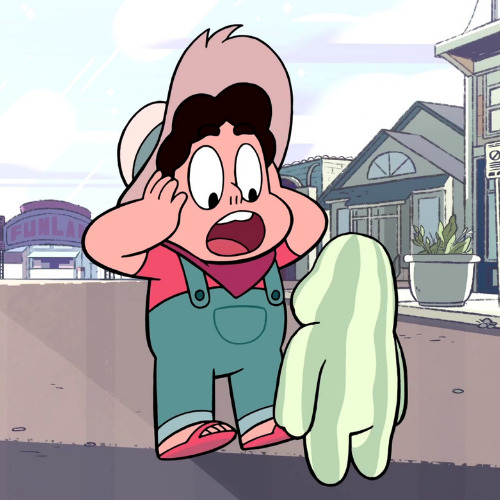
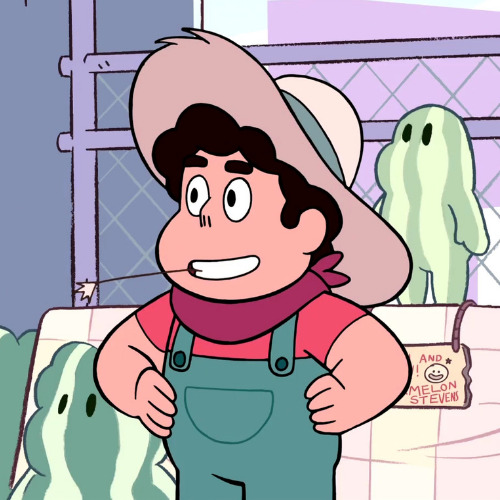
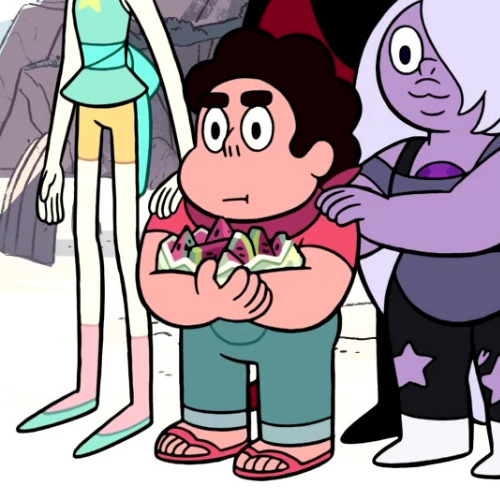
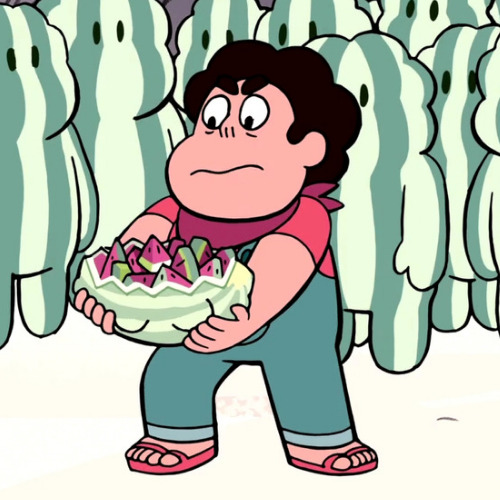
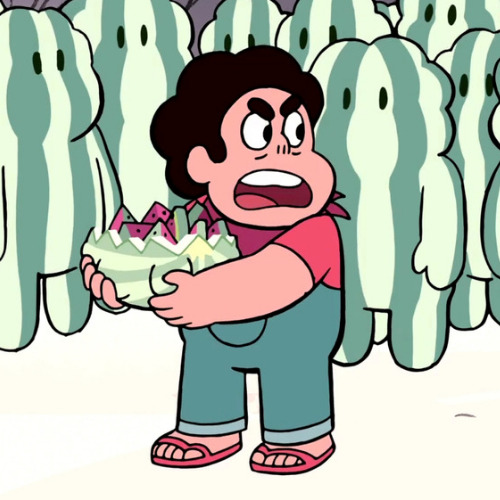
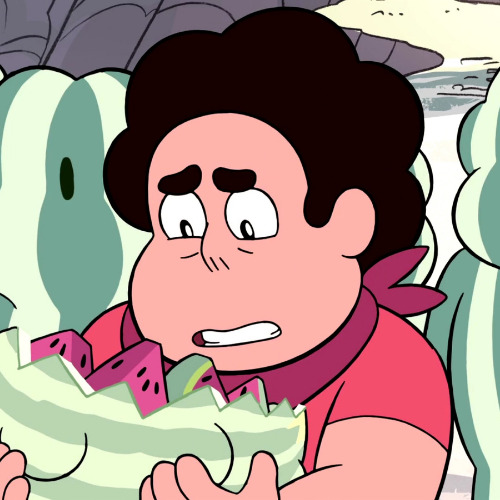
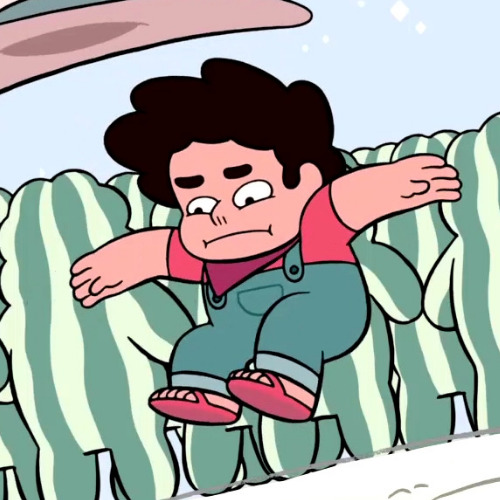
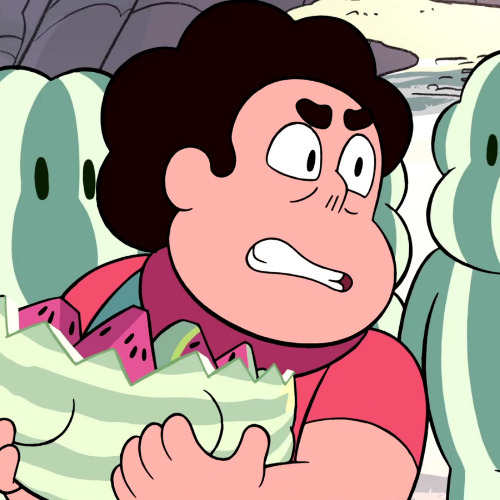
steven icons
#steven universe#steven universe icons#icons steven universe#su#su icons#icons su#steven#steven icons#icons steven#younger steven#younger steven icons#cute#s1#season 1#1x34#watermelon steven#farmer#hat#steven universo#steven universo icons#su edits#su fans
218 notes
·
View notes
Text
· · • • • 𝗦𝗧𝗘𝗩𝗘𝗡 𝗨𝗡𝗜𝗩𝗘𝗥𝗦𝗢 • • • · ·
▹ 𝐒𝐭𝐞𝐯𝐞𝐧 𝐦𝐞𝐥𝐚𝐧𝐜𝐢𝐚

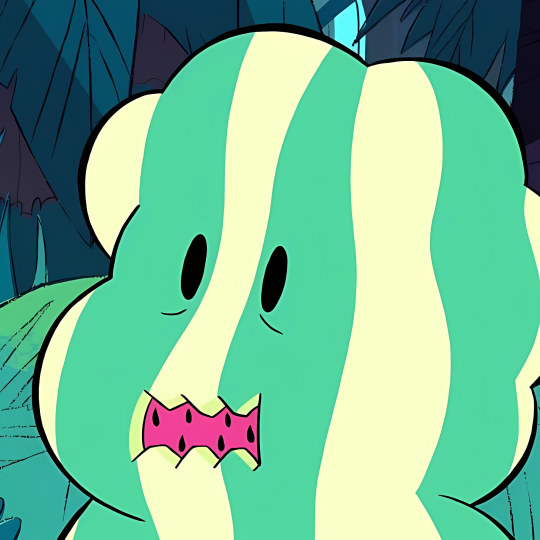

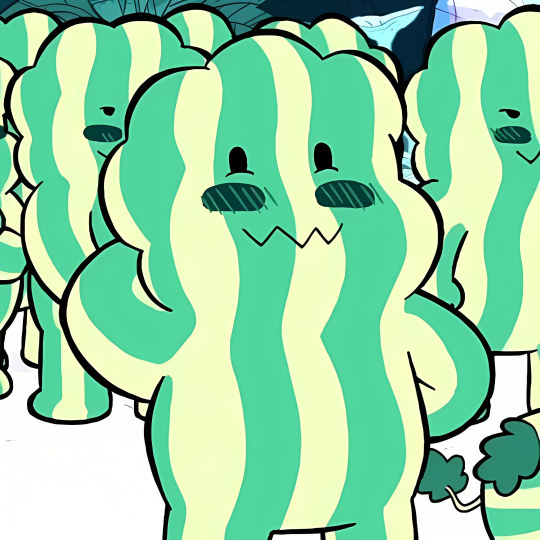
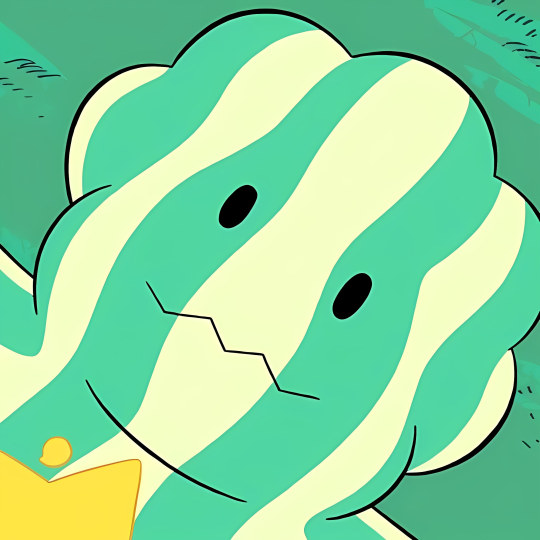

▹ 𝐋𝐢𝐤𝐞/ 𝐫𝐞𝐛𝐥𝐨𝐠 𝐢𝐟 𝐲𝐨𝐮 𝐬𝐚𝐯𝐞 𝐨𝐫 𝐮𝐬𝐞 🦋
#stevens watermelons#steven universe#steven icons#steve universe#cartoon icons#cartoon#icons#desenho animado#desenho animado icons
34 notes
·
View notes
Text
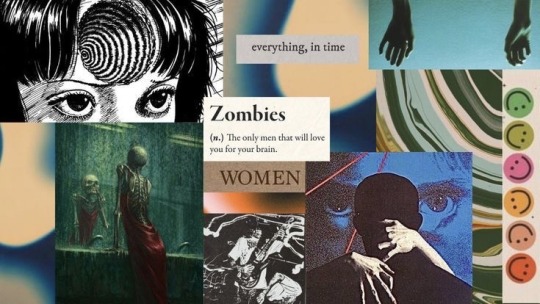
Caimyn*
Nineteen | She/they | Libra ☀️ Scorpio 🌙 leo ^
My content is and always will be intended for those 18+. Do not interact with me/my work if you are a minor, I’ll call your mom. My work is currently only accessible on AO3, however this is subject to change :)
Please don’t repost my content anywhere on any platform…ever 😄
Do not expect any work that includes incest, ageplay, extreme gore, feet fetish, underage characters in mature situations, extreme tsundere/yandere characters, bestiality, or anything involving bodily waste.
I’m not big on requests, so don’t count on me fulfilling yours. I write wtv I please and usually have limited time to do so. I don’t mind suggestions, but I make no promises!
Be respectful! That should be easy to manage without me having to list all the -isms and -phobias for you :)
Likes poetry, realistic fiction, writing, anime, ghibli films (Princess Mononoke), Quentin Tarantino movies (Kill Bill), other tv shows, music (any kind, all of it…except country), 20th Century Women, Constantine, long drives, cold weather, natural phenomena, mountains, beaches, lunar eclipses, forests, airplane rides, countryside, suburbia, crystals, astrology, horoscopes, mythology, angel numbers, egg rolls, pastas, that watermelon Arizona drink, changing my lockscreen/icon every five mins., chocolate. chip. cookies. Apex Legends, Genshin Impact, posters, art, the romantic period, figurines, rings & necklaces, piercings (bellybutton & septum 10/10), tattoos, loungewear, big t-shirts, hoodies, neutral & dark tones, Marvel movies, electric guitars, brunettes, big eyes, sports (playing not watching), women, psychology, botanical gardens, swimming, sarcasm
Attack on Titan, Demon Slayer, JoJo’s Bizarre Adventure, My Hero Academia, Neon Genesis Evangelion, Bastard !!, Hunter x Hunter, Jujutsu Kaisen, Bungou Stray Dogs, Banana Fish, Devilman crybaby, Cowboy Bebop, Haikyuu, Black Butler, Akira, Erased, Game of Thrones/HOTD, Shameless, Adventure Time, Rick & Morty, ATLA, Steven Universe, Castlevania, The Office, Parks and Recreation, Criminal Minds, The Haunting of Hill House/Bly Manor, Stranger Things, Call the Midwife, Schitt’s Creek, The Walking Dead, The Midnight Gospel
apple music
*(Ky-men)
10 notes
·
View notes
Photo
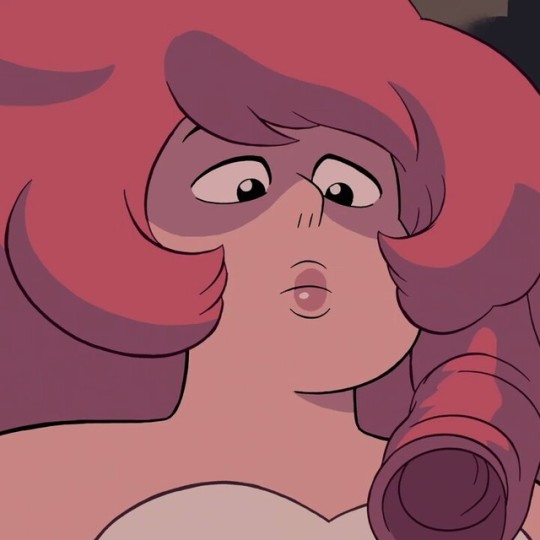
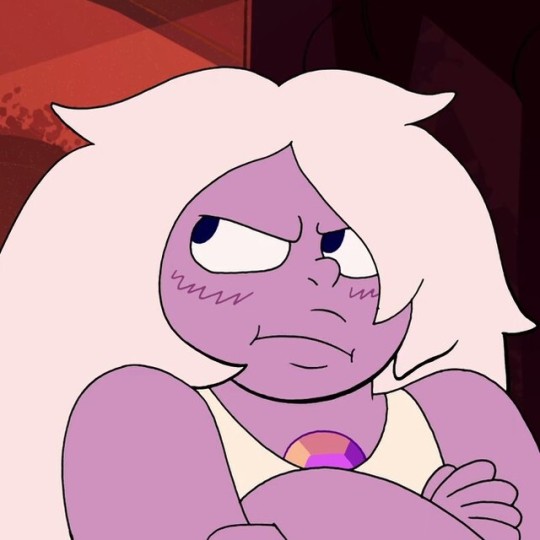
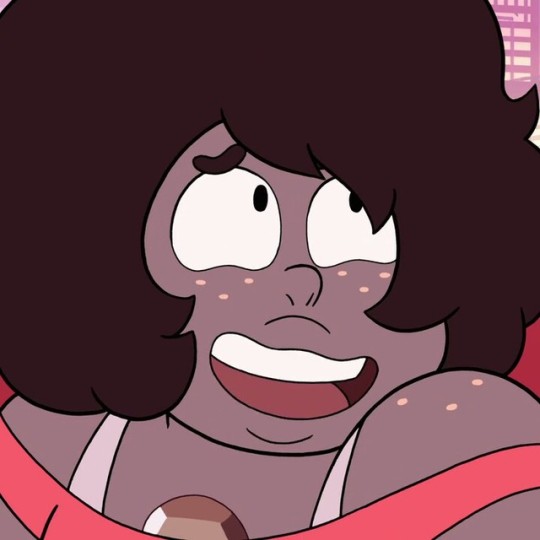
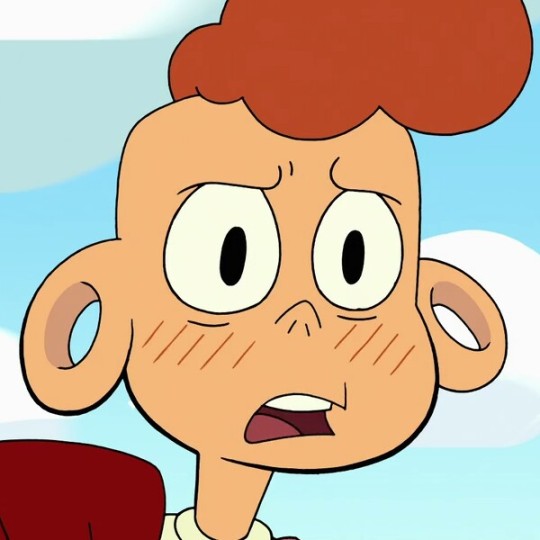
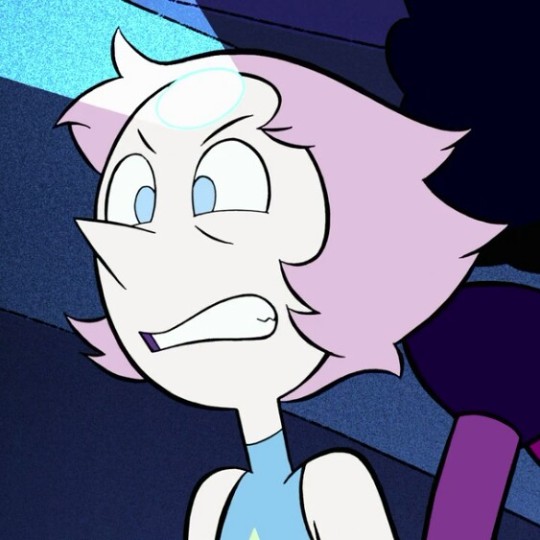
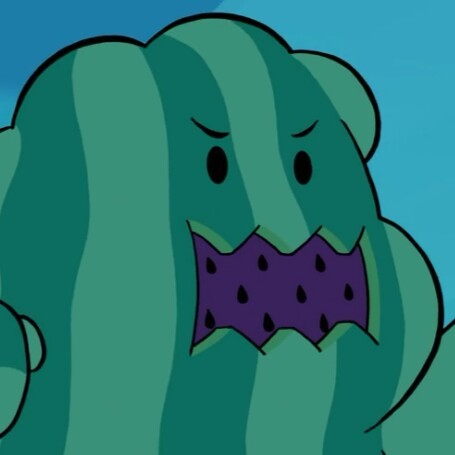
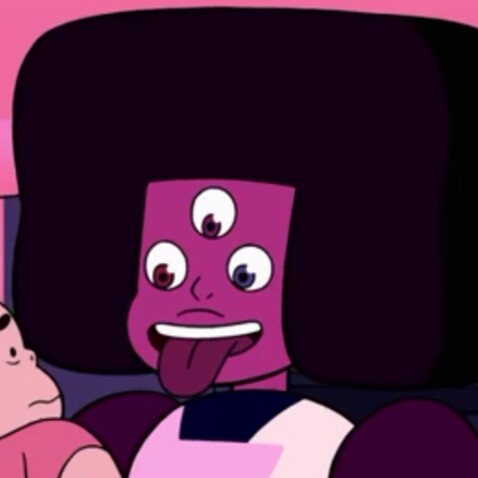
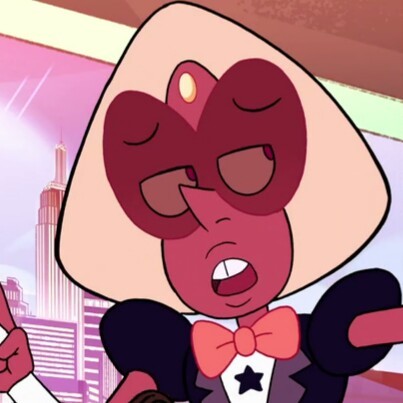
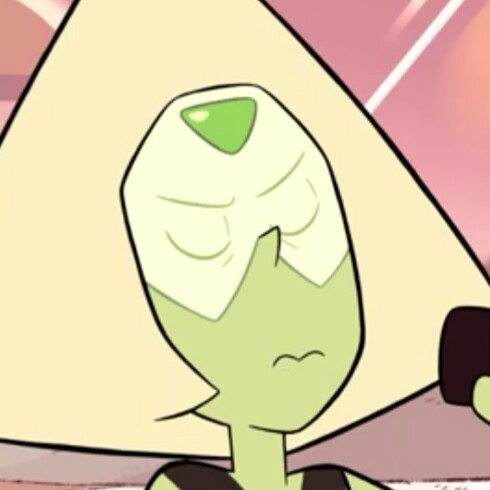
steven universe icons /2 please like or reblog if you use it
#steven universe icons#su icons#pearl icons#garnet icons#peridot icons#lars icons#smoky quartz icons#sardonyx icons#sardonix icons#rose quartz icons#watermelon steven icons#amethyst icons
768 notes
·
View notes
Text

malachite icons from jailbreak & super watermelon island
both unedited base icons & edited icons available
likes & reblogs are welcome & appreciated!
free to use and edit
100x100 in size
185 in total
unedited icons
edited icons

#malachite#steven universe#su malachite#malachite icons#steven universe icons#steveniconverse#jailbreak#super watermelon island
24 notes
·
View notes
Photo




Some gay pride Watermelon Steven icons for anon! Free to use!
120 notes
·
View notes
Photo
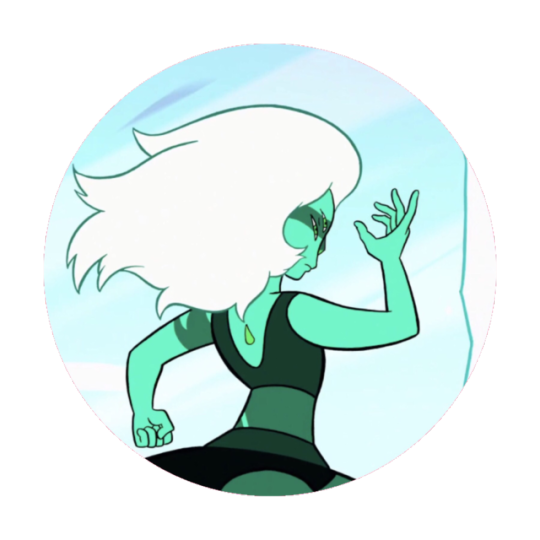
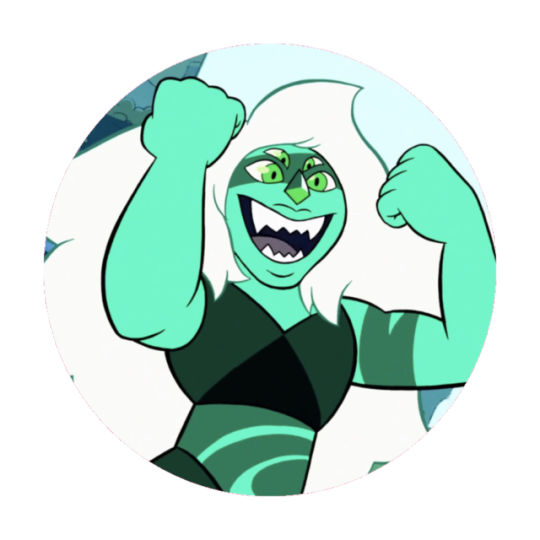
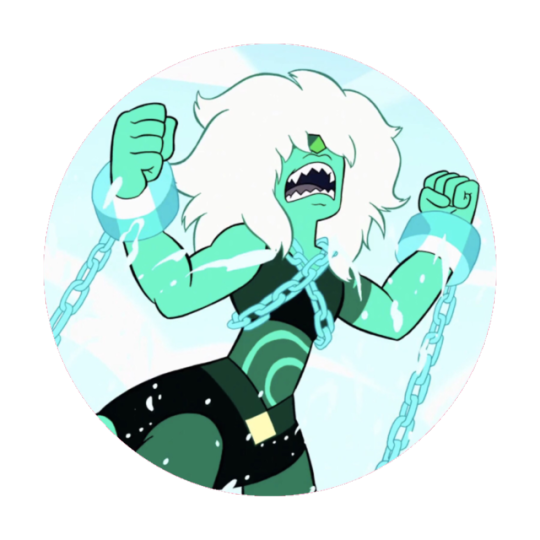
→ Malachite Icons
Requested by jens-holland!
“Sorry, but there's only room for one abomination on this measly planet.”
These are free to use. No credit is required!
#steven universe#su#malachite#super watermelon island#icons#icon#requests#jens-holland#maja makes icons
39 notes
·
View notes
Text

Photo caption: Harry with Big Red's Samantha Brenner, Jim Burruss, Peter Gray,
Brady Bedard and Matt Stevens. Harry even looks pretty in a mask.
By now you’ve probably seen the graphic on the Instagram story of every exec at Ron Perry's Columbia, spelling out the radio headline of the week: Peter Gray’s red-hot Big Red team has dominated this week’s Mediabase Classic chart by scoring the #1 #5, #10, #14 and #20 spots. For those of you still counting on your fingers, that’s five records in the Top 20, all of which are moving up this week. Which is good, right?
With Harry Styles’ endlessly infectious “Watermelon Sugar” grabbing #1 in only its 11th week on the chart—and the pop icon’s prior #1, “Adore You,” not just holding on but growing at #5 in its 35th frame—it would seem a long and successful path lies ahead for Harry, Peter and top 40 lieutenants Matt Stevens and Brady Bedard.
- via HDD
207 notes
·
View notes
Photo

Fifty Great Classic Novels Under 200 Pages
We are now end of February, which is technically the shortest month, but is also the one that—for me, anyway—feels the longest. Especially this year, for all of the reasons that you already know. At this point, if you keep monthly reading goals, even vague ones, you may be looking for few a good, short novels to knock out in an afternoon or two. So now I must turn my attention to my favorite short classics—which represent the quickest and cheapest way, I can tell you in my salesman voice, to become “well-read.”
A few notes: This list will define “classic” as being originally published before 1970. Yes, these distinctions are somewhat arbitrary, but one has to draw the line somewhere (though I let myself fudge on translation dates). I did not differentiate between novels and novellas (as Steven Millhauser would tell you, the novella is not a form at all, but merely a length), but let’s be honest with ourselves: “The Dead” is a short story, and so is “The Metamorphosis.” Sorry! I limited myself to one book by each author, valiantly, I should say, because I was tempted to cheat (looking at you Jean Rhys).
Most importantly for our purposes here: lengths vary with editions, sometimes wildly. I did not include a book below unless I could find that it had been published at least once in fewer than 200 pages—which means that some excellent novels, despite coming tantalizingly close to the magic number, had to be left off for want of proof (see Mrs. Dalloway, Black No More, Slaughterhouse-Five, etc. etc. etc.). However, your personal edition might not exactly match the number I have listed here. Don’t worry: it’ll still be short.
Finally, as always: “best” lists are subjective, no ranking is definitive, and I’ve certainly forgotten, or never read, or run out of space for plenty of books and writers here. And admittedly, the annoying constraints of this list make it more heavily populated by white and male writers than I would have liked. Therefore, please add on at will in the comments. After all, these days, I’m always looking for something old to read.
Adolfo Bioy Casares, tr. Ruth L.C. Simms, The Invention of Morel (1940) : 103 pages
Both Jorge Luis Borges and Octavio Paz described this novel as perfect, and I admit I can’t find much fault with it either. It is technically about a fugitive whose stay on a mysterious island is disturbed by a gang of tourists, but actually it’s about the nature of reality and our relationship to it, told in the most hypnotizing, surrealist style. A good anti-beach read, if you plan that far ahead.
John Steinbeck, Of Mice and Men (1937) : 107 pages
Everybody’s gateway Steinbeck is surprisingly moving, even when you revisit it as an adult. Plus, if nothing else, it has given my household the extremely useful verb “to Lenny.”
George Orwell, Animal Farm (1945) : 112 pages
If we didn’t keep putting it on lists, how would future little children of America learn what an allegory is? This is a public service, you see.
Sir Arthur Conan Doyle, The Hound of the Baskervilles (1902) : 112 pages
A people-pleaser, in more ways than one: Sherlock Holmes, after all, had been dead for years when his creator finally bent to public demand (and more importantly, the demand of his wallet) and brought him back, in this satisfying and much-beloved tale of curses and hell-beasts and, of course, deductions.
James M. Cain, The Postman Always Rings Twice (1933) : 112 pages
A 20th century classic, and still one of the best, most important, and most interesting crime novels in the canon. Fun fact: Cain had originally wanted to call it Bar-B-Q.
Nella Larsen, Passing (1929) : 122 pages
One of the landmarks of the Harlem Renaissance, about not only race but also gender and class—not to mention self-invention, perception, capitalism, motherhood and friendship—made indelible by what Darryl Pinckney called “a deep fatalism at the core.”
Albert Camus, tr. Matthew Ward, The Stranger (1942) : 123 pages
I had a small obsession with this book as a moody teen, and I still think of it with extreme fondness. Is it the thinking person’s Catcher in the Rye? Who can say. But Camus himself put it this way, writing in 1955: “I summarized The Stranger a long time ago, with a remark I admit was highly paradoxical: “In our society any man who does not weep at his mother’s funeral runs the risk of being sentenced to death.” I only meant that the hero of my book is condemned because he does not play the game.”
Juan Rulfo, tr. Margaret Sayers Peden, Pedro Páramo (1955) : 128 pages
The strange, fragmented ghost story that famously paved the way for One Hundred Years of Solitude (according to Gabriel García Márquez himself), but is an enigmatic masterpiece in its own right.
Italo Calvino, tr. Archibald Colquhoun, The Cloven Viscount (1959) : 128 pages
This isn’t my favorite Calvino, but you know what they say: all Calvino is good Calvino (also, I forgot him on the contemporary list, so I’m making up for it slightly here). The companion volume to The Nonexistent Knight and The Baron in the Trees concerns a Viscount who is clocked by a cannonball and split into two halves: his good side and his bad side. They end up in a duel over their wife, of course—just like in that episode of Buffy. But turns out that double the Viscounts doesn’t translate to double the pages.
Kate Chopin, The Awakening (1899) : 128 pages
I know, I know, but honestly, this book, which is frequently taught in American schools as an example of early feminist literature, is still kind of edgy—more than 120 years later, and it’s still taboo for a woman to put herself and her own desires above her children. Whom among us has not wanted to smash a symbolic glass vase into the hearth?
Leo Tolstoy, tr. Richard Pevear and Larissa Volokhonsky, The Death of Ivan Ilyich (1886) : 128 pages
Another classic—Tolstoy can do it all, long and short—particularly beloved by the famously difficult-to-impress Nabokov, who described it as “Tolstoy’s most artistic, most perfect, and most sophisticated achievement,” and explained the thrust of it this way: “The Tolstoyan formula is: Ivan lived a bad life and since the bad life is nothing but the death of the soul, then Ivan lived a living death; and since beyond death is God’s living light, then Ivan died into a new life—Life with a capital L.”
Richard Brautigan, In Watermelon Sugar (1968) : 138 pages
Brautigan’s wacky post-apocalyptic novel concerns a bunch of people living in a commune called iDEATH. (Which, um, relatable.) The landscape is groovy and the tigers do math, and the titular watermelon sugar seems to be the raw material for everything from homes to clothes. “Wherever you are, we must do the best we can. It is so far to travel, and we have nothing here to travel, except watermelon sugar. I hope this works out.” It’s all nonsense, of course, but it feels so good.
James Weldon Johnson, The Autobiography of an Ex-Colored Man (1912) : 140 pages
Another early novel on the subject of passing—originally published in 1912, then again under Johnson’s name in 1927—this one presented as an “autobiography” written by a Black man living as white, but uneasily, considering himself a failure, feeling until the end the grief of giving up his heritage and all the pain and joy that came with it.
Thomas Mann, tr. Michael Henry Heim, Death in Venice (1912) : 142 pages
What it says on the tin—a story as doomed as Venice itself, but also a queer and philosophical mini-masterpiece. The year before the book’s publication, Mann wrote to a friend: “I am in the midst of work: a really strange thing I brought with me from Venice, a novella, serious and pure in tone, concerning a case of pederasty in an aging artist. You say, ‘Hum, hum!’ but it is quite respectable.” Indeed.
Shirley Jackson, We Have Always Lived in the Castle (1962) : 146 pages
If you’re reading this space, you probably already know how much we love this book at Literary Hub. After that excellent opening paragraph, it only gets better.
Christopher Isherwood, A Single Man (1964) : 152 pages
Isherwood’s miniature, jewel-like masterpiece takes place over a single day in the life of a middle-aged English expat (who shares a few qualities with Isherwood himself), a professor living uneasily in California after the unexpected death of his partner. An utterly absorbing and deeply pleasurable novel.
Fyodor Dostoevsky, tr. Richard Pevear and Larissa Volokhonsky, Notes from Underground (1864) : 154 pages
Probably the best rant ever passed off as literature. Dostoevsky's first masterpiece has been wildly influential in the development of existential and dystopian storytelling of all kinds, not to mention in the development of my own high school misanthropy. Maybe yours, too? “It was all from ENNUI, gentlemen, all from ENNUI; inertia overcame me . . .” Actually, now I’m thinking that it might be a good book to re-read in pandemic isolation.
Anna Kavan, Ice (1967) : 158 pages
The narrator of this strange and terrifying novel obsessively pursues a young woman through an icy apocalypse. You might call it a fever dream if it didn’t feel so . . . cold. Reading it, wrote Jon Michaud on its 50th anniversary, is “a disorienting and at times emotionally draining experience, not least because, these days, one might become convinced that Kavan had seen the future.” Help.
Jean Toomer, Cane (1923) : 158 pages
Toomer’s experimental, multi-disciplinary novel, now a modernist classic, is presented as a series of vignettes, poems, and swaths of dialogue—but to be honest, all of it reads like poetry. Though its initial reception was uncertain, it has become one of the most iconic and influential works of 1920s American literature.
J.G. Ballard, The Drowned World (1962) : 158 pages
Only in a Ballard novel can climate change make you actually become insane—and only a Ballard novel could still feel so sticky and hot in my brain, years after I read it in a single afternoon.
Knut Hamsun, tr. Sverre Lyngstad, Hunger (1890) : 158 pages
The Nobel Prize winner’s first novel is, as Hamsun himself put it, “an attempt to describe the strange, peculiar life of the mind, the mysteries of the nerves in a starving body.” An modernist psychological horror novel that is notoriously difficult, despite its length, but also notoriously worth it.
James Baldwin, Giovanni’s Room (1956) : 159 pages
Still my favorite Baldwin, and one of the most convincing love stories of any kind ever written, about which there is too much to say: it is a must-read among must-reads.
Willa Cather, O Pioneers! (1913) : 159 pages
A mythic, proto-feminist frontier novel about a young Swedish immigrant making a home for herself in Nebraska, with an unbearably cool and modern title (in my opinion).
Françoise Sagan, tr. Irene Ash, Bonjour Tristesse (1955) : 160 pages
Sagan’s famously scandalous novel of youthful hedonism, published (also famously) when Sagan was just 19 herself, is much more psychologically nuanced than widely credited. As Rachel Cusk wrote, it is not just a sexy French novel, but also “a masterly portrait that can be read as a critique of family life, the treatment of children and the psychic consequences of different forms of upbringing.” It is a novel concerned not only with morals or their lack, but with the very nature of morality itself.
Herman Melville, Billy Budd, Sailor (1924) : 160 pages
Bartleby may be more iconic (and more fun), but Billy Budd is operating on a grander scale, unfinished as it may be.
Thomas Pynchon, The Crying of Lot 49 (1966) : 160 pages
Everyone’s gateway to Pynchon, and also everyone’s gateway to slapstick postmodernism. Either you love it or you hate it!
Franz Kafka, tr. Willa and Edwin Muir, The Trial (1925) : 160 pages
Required reading for anyone who uses the term “Kafkaesque”—but don’t forget that Kafka himself would burst out laughing when he read bits of the novel out loud to his friends. Do with that what you will.
Kenzaburo Oe, tr. John Nathan, A Personal Matter (1968) : 165 pages
Whew. This book is a lot: absolutely gorgeous and supremely painful, and probably the Nobel Prize winner’s most important.
Djuna Barnes, Nightwood (1936) : 170 pages
In his preface to the first edition, T.S. Eliot praised “the great achievement of a style, the beauty of phrasing, the brilliance of wit and characterisation, and a quality of horror and doom very nearly related to that of Elizabethan tragedy.” It is also a glittering modernist masterpiece, and one of the first novels of the 20th century to explicitly portray a lesbian relationship.
Yasunari Kawabata, tr. Edward G. Seidensticker, Snow Country (1937) : 175 pages
A story of doomed love spun out in a series of indelible, frozen images—both beautiful and essentially suspicious of beauty—by a Nobel Prize winner.
Jean Rhys, Wide Sargasso Sea (1966) : 176 pages
This novel, Rhys’s famous riposte to one of the worst love interests in literary history, tells the story of Mr. Rochester from the point of view of the “madwoman in the attic.” See also: Good Morning, Midnight (1939), which is claustrophobic, miserable, pointless, and damn fine reading.
George Eliot, Silas Marner (1861) : 176 pages
Like Middlemarch, Silas Marner is exquisitely written and ecstatically boring. Unlike Middlemarch, it is quite short.
Muriel Spark, The Girls of Slender Means (1963) : 176 pages
The girls of Spark’s novel live in the May of Teck Club, disturbed but not destroyed by WWII—both the Club, that is, and the girls. “Their slenderness lies not so much in their means,” Carol Shields wrote in an appreciation of the book, “as in their half-perceived notions about what their lives will become and their overestimation of their power in the world. They are fearless and frightened at the same time, as only the very young can be, and they are as heartless in spirit as they are merry in mode.” Can’t go wrong with Muriel Spark.
Robert Walser, tr. Christopher Middleton, Jakob von Gunten (1969) : 176 pages
Walser is a writer’s writer, a painfully underrated genius; this novel, in which a privileged youth runs off to enroll at a surrealist school for servants, may be his best.
Truman Capote, Breakfast at Tiffany’s (1958) : 179 pages
Read for proof that Holly Golightly was meant to be a Marilyn.
Chinua Achebe, Things Fall Apart (1958) : 181 pages
A powerful, clear-eyed, and haunting novel, which at the time of its publication was transgressive in its centering of African characters in all their humanity and complexity, and which paved the way for thousands of writers all over the world in the years to follow.
Leonard Gardner, Fat City (1969) : 183 pages
Universally acknowledged as the best boxing novel ever written, but so much more than that: at its core, it’s a masterpiece about that secret likelihood of life, if not of literature: never achieving your dreams.
N. Scott Momaday, House Made of Dawn (1968) : 185 pages
House Made of Dawn, Momaday’s first novel, was awarded the Pulitzer Prize and is often credited with ushering in the Native American Renaissance. Intricate, romantic, and lush, it is at its core about the creaking dissonance of two incompatible worlds existing in the same place (both literally and metaphysically) at the same time.
Chester Himes, If He Hollers Let Him Go (1945) : 186 pages
Himes’ first novel spans four days in the life of a Californian named Bob Jones, whose every step is dogged by racism. Walter Mosely called Himes, who is also renowned for his detective fiction, a “quirky American genius,” and also “one of the most important American writers of the 20th century.” If He Hollers Let Him Go, while not technically a detective story, is “firmly located in the same Los Angeles noir tradition as The Big Sleep and Devil in a Blue Dress,” Nathan Jefferson has written. “Himes takes the familiar mechanics of these novels—drinking, driving from one end of Los Angeles to another in search of answers, a life under constant threats of danger—and filters them through the lens of a black man lacking any agency and control over his own life, producing something darker and more oppressive than the traditional pulp detective’s story.”
F. Scott Fitzgerald, The Great Gatsby (1925) : 189 pages
All my life I have wanted to scoff at The Great Gatsby. Usually, things that are universally adored are bad, or at least mediocre. But every time I reread it, I remember: impossibly, annoyingly, it is as good as they say.
Vladimir Nabokov, Pnin (1957) : 190 pages
Still one of my favorite campus novels, and short enough to read in between classes.
Charles Portis, Norwood (1966) : 190 pages
Portis has gotten a lot of (well-deserved) attention in recent years for True Grit, but his first novel, Norwood, is almost as good, a comic masterpiece about a young man traipsing across a surreal America to lay his hands on $70.
Philip K. Dick, Ubik (1969) : 191 pages
Do Androids Dream of Electric Sheep? and A Scanner Darkly have more mainstream name recognition (thank you Hollywood) but Ubik is Dick’s masterpiece, filled to the brim with psychics and anti-psis, dead wives half-saved in cold-pac, and disruptions to time and reality that can be countered by an aerosol you get at the drugstore. Sometimes, anyway.
Clarice Lispector, tr. Alison Entrekin, Near to the Wild Heart (1943) : 192 pages
Lispector’s debut novel, first published in Brazil when she was only 19, is still my favorite of hers: fearless, sharp-edged, and brilliant, a window into one of the most interesting narrators in literature.
Anthony Burgess, A Clockwork Orange (1962) : 192 pages
This novel is probably more famous these days for the Kubrick film, but despite the often gruesome content, the original text is worth a read for the language alone.
Barbara Comyns, Who Was Changed and Who Was Dead (1954) : 193 pages
Comyns is a criminally under-read genius, though she’s been getting at least a small taste of the attention she deserves in recent years due to reissues by NYRB and Dorothy. This one is my favorite, permeated, as Brian Evenson puts it in the introduction of my copy, with marvelousness, “a kind of hybrid of the pastoral and the naturalistic, an idyllic text about what it’s like to grow up next to a river, a text that also just happens to contain some pretty shocking and sad disasters.” Which is putting it rather mildly indeed.
Zora Neale Hurston, Their Eyes Were Watching God (1937) : 194 pages
In 194 pages, Janie goes through more husbands than most literary heroines can manage in twice as many (and finds herself in equally short order).
Edith Wharton, Ethan Frome (1911) : 195 pages
To be honest with you, though it has been variously hailed as a masterpiece, I find Ethan Frome to be lesser Wharton—but even lesser Wharton is better than a lot of people’s best.
Joan Lindsay, Picnic at Hanging Rock (1967) : 198 pages
The mood this novel—of disappeared teens and Australian landscape and uncertainty—lingers much longer than the actual reading time.
Angela Carter, The Magic Toyshop (1967) : 200 pages
“The summer she was fifteen,” Carter’s second novel begins, “Melanie discovered she was made of flesh and blood.” It is that year that she is uprooted from her home in London to the wilds of America, and it is that year she comes to term with herself. “It is often the magical, fabular aspects of Carter’s stories that people focus on, but in The Magic Toyshop I responded to the way she blended this with a clear-eyed realism about what it was to live in a female body,” Evie Wyld wrote in her ode to this novel. “In a novel so brilliantly conjured from splayed toothbrush heads, mustard-and-cress sandwiches and prawn shells, bread loaves and cutlery, brickwork and yellow household soap, the female body is both one more familiar object and at the same time something strange and troubling.”
Daily inspiration. Discover more photos at http://justforbooks.tumblr.com
30 notes
·
View notes
Text
Favourite films watched in 2020
In no particular order:
Katalin Varga (Peter Strickland, 2009)
The Gleaners and I (Les Glaneurs et la glaneuse, Agnès Varda, 2000)
Land of Silence and Darkness (Land des Schweigens und der Dunkelheit, Werner Herzog, 1971)
Post Tenebras Lux (Carlos Reygadas, 2012)
The Return (Возвращение, Andrey Zvyaginstev, 2003)
The Grand Bizarre (Jodie Mack, 2018)
Transnistra (Anna Eborn, 2019)
Ghost Town Anthology (Répertoire des villes disparues, Denis Côté, 2019)
The Petrified Forest (Archie Mayo, 1936)
Viy (Вий, Georgiy Kropachyov & Konstantin Ershov, 1967)
Complete list of all 323 films watched in 2020 under the cut!
January
Angus, Thongs and Perfect Snogging (Gurinder Chadha, 2008)
Blade (Steven Norrington, 1998)
Who Among Us! (Abhishek Prasad and Rebecca Kahn, 2019)
Brotherhood (Meryam Joobeur, 2018)
Disctrict 9 (Neill Blomkamp, 2009)
Hair Love (Matthew A. Cherry and Karen Rupert Toliver, 2019)
Kitbull (Rosana Sullivan, 2019)
Sister (妹妹, Siqi Song, 2019)
Nuts! (Penny Lane, 2016)
The Judge (Erika Cohn, 2017)
The Ghosts of Sugar Land (Bassam Tariq, 2019)
Amazonia (Dominic Hicks, 2018)
Dearborn Ash (Hena Ashraf, 2018)
Pineal (Jenny Rinta-Kanto, 2019)
Headcleaner (Nick Scott, 2019)
Rattlesnake (Zak Hilditch, 2019)
The Neon Demon (Nicolas Winding Refn, 2016)
Skin (Audrey Rosenberg, 2018)
The Banishment (Изгнание, Andrey Zvyagintsev, 2007)
F is for Friendship (Shaya Mulcahy, 2016)
Paradise Hills (Alice Waddington, 2019)
Road House (Rowdy Herrington, 1989)
Hustlers (Lorene Scafaria, 2019)
I Believe in Unicorns (Leah Meyerhoff, 2014)
Ghost Train (Lee Cronin, 2014)
Troop Zero (Bert & Bertie, 2019)
For the Love of God (Pour l'Amour de Dieu, Micheline Lanctôt, 2011)
February
Sitting Next to Zoe (Ivana Lalović, 2013)
Dark Places (Gilles Paquet-Brenner, 2015)
Nocturnal Animals (Tom Ford, 2016)
The Limey (Steven Soderbergh, 1999)
Side Effects (Steven Soderbergh, 2013)
Good Sam (Kate Melville, 2019)
Anima (Paul Thomas Anderson, 2019)
What Did Jack Do? (David Lynch, 2017)
Fleur de tonnerre (Stéphanie Pillonca, 2016)
Parasite (Bong Joon-ho, 2019)
The Field Guide to Evil (Peter Strickland, Veronika Franz & Severin Fiala, Katrin Gebbe, Yannis Veslemes, Ashim Ahluwalia, Agnieszka Smoczynska, Can Evrenol, Calvin Reeder, 2018)
Devil (John Eric Dowdle, 2010)
37 Seconds (Hikari, 2019)
The Falling (Carol Morley, 2014)
Grave of the Fireflies (火垂るの墓, Hotaru no Haka, Isao Takahata, 1988)
Elena (Елена, Andrey Zvyagintsev, 2011)
The Lighthouse (Robert Eggers, 2019)
Baskin (Can Evrenol, 2015)
In Fabric (Peter Strickland, 2018)
Leviathan (Левиафан, Andrey Zvyagintsev, 2014)
Suffragette (Sarah Gavron, 2015)
March
The East (Zal Batmanglij, 2013)
Solaris (Солярис, Andrei Tarkovsky, 1972)
Mamma Mia! (Phyllida Lloyd, 2008)
There Will Be Blood (Paul Thomas Anderson, 2007)
Io (Jonathan Helpert, 2019)
The Death and Life of Marsha P. Johnson (David France, 2017)
A Bump Along the Way (Shelly Love, 2019)
Color Out of Space (Richard Stanley, 2019)
Divines (Houda Benyamina, 2016)
Vanishing Waves (Kristina Buožytė, 2012)
Mirror (Зеркало, Andrei Tarkovsky, 1975)
Zama (Lucrecia Martel, 2017)
Swallow (Carlo Mirabella-Davis, 2019)
Joy (Sudabeh Mortezai, 2018)
Good Time (Josh and Benny Safdie, 2017)
Quarantine (John Eric Dowdle, 2008)
The Reflecting Skin (Philip Ridley, 1990)
Three Billboards Outside Ebbing, Missouri (Martin McDonagh, 2017)
Leto (Лето, Kirill Serebrennikov, 2018)
The 39 Steps (Alfred Hitchcock, 1935)
April
Queen of Earth (Alex Ross Perry, 2015)
Black Christmas (Sophia Takal, 2019)
Dogs of Chernobyl (Léa Camilleri & Hugo Chesnel, 2020)
Firecrackers (Jasmin Mozaffari, 2018)
Les Misérables (Ladj Ly, 2019)
The Evil Dead (Sam Raimi, 1981)
The Daughters of Fire (Las hijas del fuego, Albertina Carri, 2018)
The Fallen Idol (Carol Reed, 1948)
The Wailing (곡성, Gokseong, Na Hong-jin, 2016)
Inherent Vice (Paul Thomas Anderson, 2014)
Sorrowful Shadow (Guy Maddin, 2004)
Mistery Lonely (Harmony Korine, 2007)
The Grand Bizarre (Jodie Mack, 2018)
Zombieland: Double Tap (Ruben Fleischer, 2019)
Waves '98 (Ely Dagher, 2015)
Uncut Gems (Josh and Benny Safdie, 2019)
The Last Séance (Laura Kulik, 2018)
Too Late to Die Young (Tarde para morir joven, Dominga Sotomayor Castillo, 2018)
Room (Lenny Abrahamson, 2015)
Queen & Slim (Melina Matsoukas, 2019)
The Holy Mountain (La montaña sagrada, Alejandro Jodorowsky, 1973)
The Chaser ( 추격자, Chugyeokja, Na Hong-jin, 2008)
Made in Dagenham (Nigel Cole, 2010)
The Color of Pomegranates (Նռան գույնը, Nřan guynə, Sergei Parajanov, 1969)
Lost Girls (Liz Garbus, 2020)
Ghost Town Anthology (Répertoire des villes disparues, Denis Côté, 2019)
And Then There Were None (René Clair, 1945)
Doctor Sleep (Mike Flanagan, 2019)
Meshes of the Afternoon (Maya Deren and Alexander Hammid, 1943)
Circus of Books (Rachel Mason, 2019)
Catfish (Henry Joost and Ariel Schulman, 2010)
Wildling (Fritz Böhm, 2018)
Delphine (Chloé Robichaud, 2019)
The Strange Love of Martha Ivers (Lewis Milestone, 1946)
The Red Balloon (Le Ballon rouge, Albert Lamorisse, 1956)
Nona. If They Soak Me, I’ll Burn Them (Nona. Si me mojan, yo los quemo, Camila José Donoso, 2019)
The Lodge (Veronika Franz & Severin Fiala, 2019)
Invisible Man (Leigh Whannell, 2020)
Sans Soleil (Chris Marker, 1983)
May
A Russian Youth (Мальчик русский, Alexander Zolotukhin, 2019)
Sicario (Denis Villeneuve, 2015)
Fedora (Billy Wilder, 1978)
LoveTrue (Alma Har'el, 2016)
The Platform (Galder Gaztelu-Urrutia, 2019)
Water Lilies (Naissance des pieuvres, Céline Sciamma, 2007)
The Assistant (Kitty Green, 2019)
The Half of It (Alice Wu, 2020)
Tomboy (Céline Sciamma, 2011)
The Last Man on Earth (Ubaldo Ragona and Sidney Salkow, 1964)
Beanpole (Дылда, Kantemir Balagov, 2019)
Mommy (Xavier Dolan, 2014)
The Fall (Jonathan Glazer, 2020)
Girlhood (Bande de filles, Céline Sciamma, 2014)
Carnival of Souls (Herk Harvey, 1962)
Marguerite & Julien (Valérie Donzelli, 2015)
Portrait of a Lady on Fire (Portrait de la jeune fille en feu, Céline Sciamma, 2019)
This Magnificent Cake! (Ce Magnifique Gâteau!, Emma De Swaef & Marc James Roels, 2018)
Romantic Comedy (Elizabeth Sankey, 2019)
Transnistra (Anna Eborn, 2019)
Eraserhhead (David Lynch, 1977)
The Farewell (Lulu Wang, 2019)
Emma. (Autumn de Wilde, 2020)
Late Night (Nisha Ganatra, 2019)
Charlie's Angels (Elizabeth Banks, 2019)
Birds of Prey (and the Fantabulous Emancipation of One Harley Quinn) (Cathy Yan, 2020)
The Ancestors Came (Cecile Emeke, 2017)
Suicide by Sunlight (Nikyatu Jusu, 2019)
Anthropocene: The Human Epoch (Edward Burtynsky, Jennifer Baichwal, Nicholas de Pencier, 2018)
A Perfect 14 (Giovanna Morales Vargas, 2018)
Westwood: Punk, Icon, Activist (Lorna Tucker, 2018)
Free Radicals (Len Lye, 1958)
Aniara (Pella Kågerman and Hugo Lilja, 2018)
Vivarium (Lorcan Finnegan, 2019)
La Pointe-Courte (Agnès Varda, 1955)
Diary of a Pregnant Woman (L'Opéra-Mouffe, Agnès Varda, 1958)
Salut les Cubains (Agnès Varda, 1964)
Uncle Yanco (Oncle Yanco, Agnès Varda, 1967)
GUO4 (Peter Strickland, 2019)
Atlantiques (Mati Diop, 2009)
Sitara: Let Girls Dream (Sharmeen Obaid-Chinoy, 2019)
Lions Love (Lions Love... And Lies, Agnès Varda, 1969)
Živan Makes a Punk Festival (Živan pravi pank festival, Ognjen Glavonić, 2014)
Plastic and Glass (Tessa Joosse, 2009)
The So-Called Caryatids (Les Dites Cariatides, Agnès Varda, 1984)
The Octopus (La Pieuvre, Jean Painlevé, 1928)
Hyas and Stenorhynchus (Hyas et sténorinques, crustacés marins, Jean Painlevé, 1929)
Sea Urchins (Les Oursins, Jean Painlevé, 1929)
Bernard-L'Hermite (Bernard-l'Ermite, Jean Painlevé, 1930)
The Sea Horse (L'Hippocampe ou "cheval marin", Jean Painlevé, 1934)
Voyage to the Sky (Voyage dans le ciel, Jean Painlevé, 1937)
Le Vampire (Jean Painlevé, 1945)
Freshwater Assassins (Assassins d'eau douce, Jean Painlevé, 1947)
How Some Jellyfish Are Born (Comment naissent des méduses, Jean Painlevé and Geneviève Hamon, 1960)
Shrimp Stories (Histoires de crevettes, Jean Painlevé and Geneviève Hamon, 1964)
The Love Life of the Octopus (Les Amours de la pieuvre, Jean Painlevé and Geneviève Hamon, 1965)
Acera, or The Witches' Dance (Acera, ou le Bal des Sorcières, Jean Painlevé and Geneviève Hamon, 1972)
Pigeons of the Square (Les Pigeons du square, Jean Painlevé, 1982)
The Slumber Party Massacre (Amy Holden Jones, 1982)
Jane B. par Agnès V. (Agnès Varda, 1988)
The Cranes Are Flying (Летят журавли, Mikhail Kalatozov, 1957)
Crystal Swan (Хрусталь, Darya Zhuk, 2018)
Take Me Somewhere Nice (Ena Sendijarević, 2019)
Microhabitat ( 소공녀, Jeon Go-woon, 2017)
The Unforeseen (Laura Dunn, 2007)
June
Funny Games (Michael Haneke, 1997)
Louise Bourgeois: The Spider, the Mistress and the Tangerine (Marion Cajori and Amei Wallach, 2008)
Wodaabe: Herdsmen of the Sun (Werner Herzog, 1989)
Bells from the Deep: Faith and Superstition in Russia (Glocken aus der Tiefe - Glaube und Aberglaube in Russland, Werner Herzog, 1993)
We Are the Best! (Vi är bäst!, Lukas Moodysson, 2013)
Olla (Ariane Labed, 2019)
Return to Reason (Le Retour à la raison, Man Ray, 1923)
Ghosts Before Breakfast (Vormittagsspuk, Hans Richter, 1928)
Sissy Boy Slap Party (Guy Maddin, 2004)
The Republic of Enchanters (La République des enchanteurs, Fanny Liatard and Jérémy Trouilh, 2016)
Sullivan's Banks (Sullivans Banken, Heinz Emigholz, 2000)
Black Panthers (Agnès Varda, 1970)
Asparagus (Suzan Pitt, 1979)
America (Valérie Massadian, 2013)
The Fall (Tarsem Singh, 2006)
The Watermelon Woman (Cheryl Dunye, 1996)
Douce Menace (Ludovic Habas, Yoan Sender, Margaux Vaxelaire, Mickaël Krebs, Florent Rousseau, 2011)
Curling (Denis Côté, 2010)
Trouble Every Day (Claire Denis, 2001)
The Return (Возвращение, Andrey Zvyaginstev, 2003)
Maillart's Bridges (Maillarts Brücken, Heinz Emigholz, 2000)
Two Years at Sea (Ben Rivers, 2011)
The Creeping Garden (Tim Grabham and Jasper Sharp, 2014)
Homo Sapiens (Nikolaus Geyrhalter, 2016)
A Radiant Life (Une Vie radieuse, Meryll Hardt, 2013)
Shirley (Josephine Decker, 2020)
Disclosure (Sam Feder, 2020)
Baghead (Mark Duplass and Jay Duplass, 2008)
Lahemaa (Leslie Lagier, 2010)
Closeness (Теснота, Kantemir Balagov, 2017)
Touki Bouki (Djibril Diop Mambéty, 1973)
Daughter (Dcera, Daria Kashcheeva, 2019)
Human Nature (Sverre Fredriksen, 2019)
1 Dimension (一维, Lü Yue, 2013)
July
Post Tenebras Lux (Carlos Reygadas, 2012)
Something to Remember (Något Att Minnas, Niki Lindroth Von Bahr, 2019)
Gegenüber (Ewa Wikiel, 2019)
The Claudia Kishi Club (Sue Ding, 2020)
Villa Empain (Katharina Kastner, 2019)
Fata Morgana (Werner Herzog, 1971)
Some Like It Hot (Billy Wilder,1959)
Breakwater (Quebramar, Cris Lyra, 2019)
Y a-t-il une vierge encore vivante? (Bertrand Mandico, 2015)
Virus Tropical (Santiago Caicedo, 2017)
The Tribe (Племя, Miroslav Slaboshpitsky, 2014)
Integration Report 1 (Madeline Anderson, 1960)
Tribute to Malcolm X (Madeline Anderson, 1967)
August
The Stopover (Voir du pays, Delphine and Muriel Coulin, 2016)
Our Time (Nuestro Tiempo, Carlos Reygadas, 2018)
Never Rarely Sometimes Always (Eliza Hittman, 2020)
Land of Silence and Darkness (Land des Schweigens und der Dunkelheit, Werner Herzog, 1971)
Continental, a Film Without Guns (Continental, un film sans fusil, Stéphane Lafleur, 2007)
Spaceship Earth (Matt Wolf, 2020)
The Go-Go's (Alison Ellwood, 2020)
First Cow (Kelly Reichardt, 2019)
Light of My Life (Casey Affleck, 2019)
Wadjda (Haifaa al-Mansour, 2012)
Spinster (Andrea Dorfman, 2020)
Love and Anarchy (Film d'amore e d'anarchia, ovvero: stamattina alle 10, in via dei Fiori, nella nota casa di tolleranza..., Lina Wertmüller, 1973)
Shapito Show (Шапито шоу, Sergey Loban, 2011)
Charade (Stanley Donen, 1693)
Cat People (Jacques Tourneur, 1942)
Radioactive (Marjane Satrapi, 2019)
Tabloid (Errol Morris, 2010)
The Mourning Forest ( 殯の森, Mogari No Mori, Naomi Kawase, 2007)
Lilya 4-ever (Lilja 4-ever, Lukas Moodysson, 2002)
September
The Nightingale (Jennifer Kent, 2018)
Babyteeth (Shannon Murphy, 2019)
Let the Corpses Tan (Laissez bronzer les cadavres, Hélène Cattet & Bruno Forzani, 2017)
Wings of Desire (Der Himmel über Berlin, Wim Wenders, 1987)
In My Room (Mati Diop, 2020)
Katalin Varga (Peter Strickland, 2009)
Les 3 Boutons (Agnès Varda, 2015)
Somebody (Miranda July, 2014)
Öndög (Wang Quan'an, 2019)
Strasbourg 1518 (Jonathan Glazer, 2020)
Mermaid (Русалка, Anna Melikyan, 2007)
The Lighthouse (Маяк, Maria Saakyan, 2006)
Phenomena (Dario Argento, 1985)
That One Day (Crystal Moselle, 2016)
Brigitte (Lynne Ramsay, 2019)
The Wedding Singer's Daughter (Haifaa al-Mansour, 2018)
Shako Mako (Hailey Gates, 2019)
Carmen (Chloë Sevigny, 2017)
The Summer of Sangailė (Sangailės Vasara, Alanté Kavaïté, 2015)
Hello Apartment (Dakota Fanning, 2018)
Seed (Naomi Kawase, 2016)
Beyond the Visible: Hilma af Klint (Halina Dyrschka, 2019)
Matthias & Maxime (Xavier Dolan, 2019)
The Gleaners and I (Les Glaneurs et la glaneuse, Agnès Varda, 2000)
October
American Murder (Jenny Popplewell, 2020)
Hereditary (Ari Aster, 2018)
Ghostland (Pascal Laugier, 2018)
Triangle (Christopher Smith, 2009)
The Amityville Horror (Stuart Rosenberg, 1979)
The Visit (M. Night Shyamalan, 2015)
The House of the Devil (Ti West, 2009)
Misery (Rob Reiner, 1990)
The Exorcist (William Friedkin, 1973)
Coherence (James Ward Byrkit, 2013)
Metamorphosis (변신, Kim Hong-sun, 2019)
Errementari (Paul Urkijo Alijo, 2017)
I Am a Ghost (H.P. Mendoza,2012)
The Changeling (Peter Medak, 1980)
Witching and Bitching (Las Brujas de Zugarramurdi, Álex de la Iglesia, 2013)
Thirst (박쥐, Park Chan-wook, 2009)
V/H/S ( Adam Wingard, David Bruckner, Ti West, Glenn McQuaid, Joe Swanberg, Radio Silence, 2012)
The Autopsy of Jane Doe (André Øvredal, 2016)
Overlord (Julius Avery, 2018)
Häxan (Benjamin Christensen, 1922)
Viy (Вий, Georgiy Kropachyov & Konstantin Ershov, 1967)
Amulet (Romola Garai, 2020)
A Bucket of Blood (Roger Corman, 1959)
The Wasp Woman (Roger Corman, 1959)
Mother! (Darren Aronofsky, 2017)
Suspiria (Dario Argento, 1977)
The Open House (Matt Angel, Suzanne Coote, 2018)
November
The Damned Don't Cry (Vincent Sherman, 1950)
Notorious (Alfred Hitchcock, 1946)
While the City Sleeps (Fritz Lang, 1956)
The Man Who Wasn't There (Joel Coen, 2001)
The Naked City (Jules Dassin, 1948)
The Petrified Forest (Archie Mayo, 1936)
Croupier (Mike Hodges, 1998)
In a Lonely Place (Nicholas Ray, 1950)
Elevator to the Gallows (Ascenseur pour l'��chafaud, Louis Malle, 1958)
Key Largo (John Huston, 1948)
Dial M for Murder (Alfred Hitchcock, 1954)
The Long Farewell (Долгие проводы, Kira Muratova, 1971)
The Killers (Robert Siodmak, 1946)
Gun Crazy (Joseph H. Lewis, 1950)
Alphaville (Jean-Luc Godard, 1965)
Laura (Otto Preminger, 1944)
The Third Man (Carol Reed, 1949)
Dark City (Alex Proyas, 1998)
Night and the City (Jules Dassin, 1950)
Ace in the Hole (Billy Wilder, 1951)
December
Nimic (Yorgos Lanthimos, 2020)
Elsa la rose (Agnès Varda, 1966)
Le Bonheur (Agnès Varda, 1965)
Little Girl (Petite Fille, Sébastien Lifshitz, 2020)
Cold Meridian (Peter Strickland, 2020)
The Fiancés of the Bridge Mac Donald (Les Fiancés du Pont Mac Donald ou (Méfiez-vous des Lunettes Noires)) (Agnès Varda, 1961)
Along the Coast (Du côté de la côte, Agnès Varda, 1958)
Vic + Flo Saw a Bear (Vic + Flo ont vu un ours, Denis Côté, 2013)
Zootopia (Byron Howard, Rich Moore, 2016)
It's a Wonderful Life (Frank Capra, 1946)
Paddington (Paul King, 2014)
Miracle on 34th Street (George Seaton, 1947)
High Life (Claire Denis, 2018)
Paddington 2 (Paul King, 2017)
16 notes
·
View notes
Text
Haha I’m Feeling Hella Anxious Right Now, So Let’s Do A Watcher Weekly Commentary
I know this is the second commentary in a week, but I am tiny bit of mess right now and my body is tight with ~anxiety~ so I’m going to do it anyway. You know become a source a comfort for me so yay?✨ Anyway here’s the rundown for this shit show I watch a Watcher Weekly episode and write down my stream of consciousness commentary (it makes more sense if you watch along) then I rate the episode (All the episodes deserve at least a 10 though). I include quotes and timestamps and most importantly ~my opinions~ and maybe a few jokes here and there. It’s not that deep so let’s get it started!!!
Previous Episode: WW #04 First Episode
WW #05:Homemade Q+A (ft. Musical Guest - AJ Rafael)
Starting off with this episode strong we have Shane being confused
Oh! look all the boys all have their legs crossed
And Ryan’s Lakers jersey 🥺
Y’all I used to watch AJ Rafael’s videos RELIGIOUSLY especially his piano/ Disney song challenges. Yo I’m both such a Disney nerd and a music nerd
Then Ryan’s radio DJ impression at @0:33-0:44
beautiful! immaculate! i’ve never heard anything as good as this!
it’s been a looooooooooong week, but they have a logo up on the wall!
yo I miss the office so so much 🥺
WE NEED TO TALK ABOUT THE BOY’S HAIR EVERY WEEK! that is the law
i’m sorry the vibes of this commentary is... something else. BUT I can’t change that and I will not change it.
Ryan’s hair this week is... questionable???
I love Shane’s beanie. It looks nice on him (this is getting weird)
I also love the fact that the Watcher hat doesn't fit Shane’s melon of a head
“It’s like a thimble on top of a watermelon”- Shane’s words not mine
I love how Ryan relating their seating arrangement to couple’s counseling then Steven immediately choking on his drink
Ryan being the aggressive therapist trying to solve Shane and Steven’s friendship "problems
“You know that phrase I’m not going to say it right. Umm. You don’t shit while you eat. Is that right?!”- Steven Lim 2020 @2:38-2:45
Me: 👁👄👁 Shane: *chokes* Ryan: Jim Halperts into the camera
Hanging out with Shane is = Shitting ~ now that we’ve found the root of the problem 😂😂😂
@3:00- 3:11 a very iconic moment but it is also very BFU vibes
Shane is a documentarian. That’s the tweet.
Oh boy here you go! Let me preface this moment. I cry like once every month and a half and when I watched this part of the Watcher Weekly for the first time I definitely shed a few tears
And I’m not a sport person I only play field hockey, so I don’t turn into a literal circle. But Kobe’s death affected me in a way I didn’t think it would. and now I’m rambling.
Ryan’s memorial story like it’s both so touching yet so heartbreaking
I-. yo I don’t want to cry right now! I’m trying to do my eyeshadow!!!
“to see him get knocked down and not get back up. it’s like watching superman die”
Since tomorrow is not guaranteed I just want to say to all my mutuals and anyone who reads this. I love you guys so much and this community has made me so happy over quarantine. So thank you so much for just being here. I appreciate all of you 💕💜💖💙❣💞💖
I’m going to stop this sappiness or I will cry and honestly I don’t want to
“I appreciate this hand on my shoulder”- Steven Lim 2020
I love how Ryan is now getting irritated by Steven saying this and Steven definitely knows this
@7:25- 7:43 omg they’re all hugging and side hugging 🥺
And Ryan’s super aggressive “YOU JUST WATCH SHANE” that immediately turned into “wait actually you deserve a hug too”
Then Shane’s surprised “THERE’S A HAND ON MY SHOULDER!”
OOH! Since this commentary is freakishly long here’s a question for y’all who are still here
What is your dream Top 5 Beatdown Episode????
Hugh Jonner??? Is this the new Beetlejuice? If Shane says his name three times his joke would be recognized.
@11:08 TiMe To PuT oN oUr QuEsTiOn CaPs🥴
Hi TONY!!! psst! he’s the director of homemade 😂
Tony does look like he’s going to drop some fire bars
I love how Homemade is almost like the grown-up version of Worth-It
“She worked you like homework” - Yeah Steven drop those bars. it took him way too long to come up with that
Steven Lim ~ Watcher’s Party Boy
I love how Top 5 Beatdown came after the gorgeous show that Homemade is
Top 5 Beatdown was filmed in front of a live studio audience in Ryan’s dirty living room
Photo op @15:40 “I’m Steven Lim and I drag out those ‘dotes”
Ooh! a second question: What is your dream Homemade episode?
A musical guest brought to you by the UPS guy
Almost went on a rant about the USPS and how we need it but this post is getting too long 🙃
Gordon Ramsey is proud of Steven
Gordon Ramsey is so nice in British TV at least compared to the US
Homemade Sherri Madej loves it so you should too
“this comes from john THICC”- Ryan Bergara 2020
@21:36-21:56 Ryan is playing the keys grooving along until... the DIPLOCOCCUS is mentioned
Oh TheDiplococcus and your paragraph long threats
Is the Diplococcus is British??
Oh! Two photo ops in one video! @23:41 “Hi I’m Ryan Bergara and I’m a pothead”
Yo the camera work at this last part
DUde I love AJ’s voice
yo why is this so catchy?? am I about to add this to my playlist?
is Steven the new lofi-girl
also why is he so tall in this shot? How tall is he?
Ryan’s little for Kobe almost got me but I love that’s how they decided to end the episode
This episode almost gave me emotional whiplash (is that the right word?) but at the same time was super comforting. I really enjoy when the boys and in this case Ryan feel comfortable enough to show their emotions. Like you can tell that Ryan is barely holding yet still puts on a smile and gives this Watcher Weekly his all. I just really appreciate it. Like you can tell how much Kobe has shaped his life. Idk what I’m saying but I think you get what I’m saying. Anyway this episode 420 thimbles on watermelons out of 10.
#Watcher#watcher entertainment#watcher weekly#shane madej#ryan bergara#steven lim#homemade#haha this took almost 2 hours haha#but it was fun but I do need to head to bed#usermarylan#ryanberga#long post sorry y'all#the vibes here are also ~wild~#sorry I was such a downer in this one#i hope yall are doing well#love you guys so so much#oh there was a lot of choking in this episode#so boys learn how to drink liquids😂😂😂#I should not be the one talking I choke on my food at LEAST once per meal
12 notes
·
View notes
Text
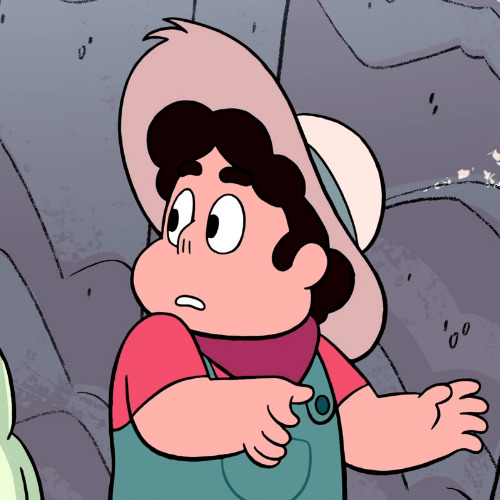
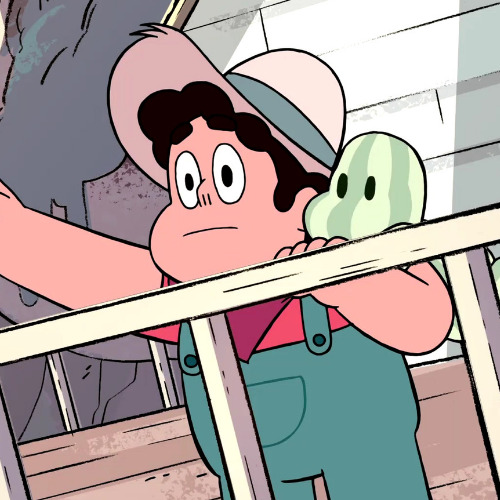

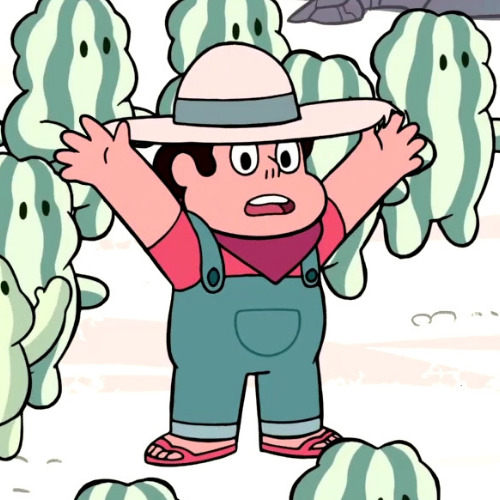
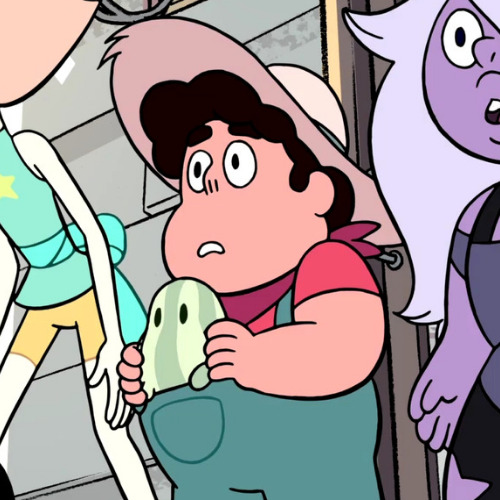
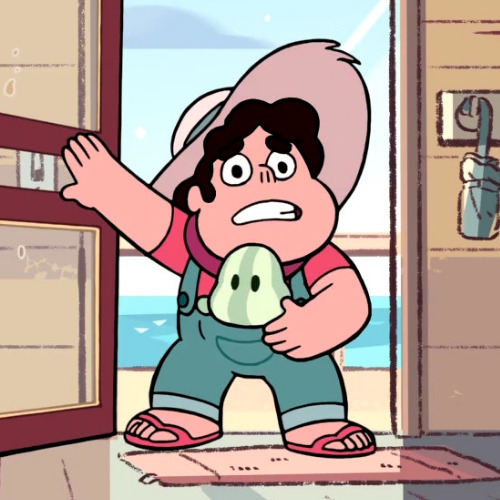
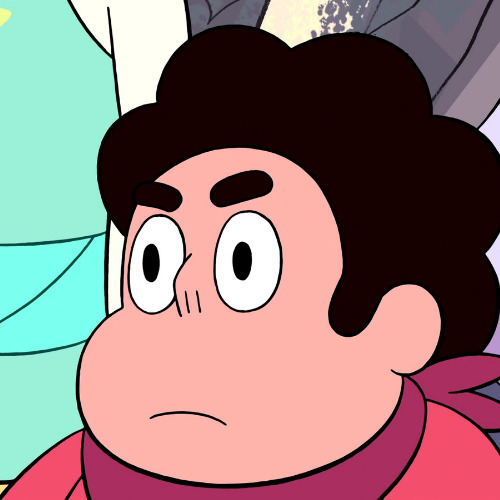
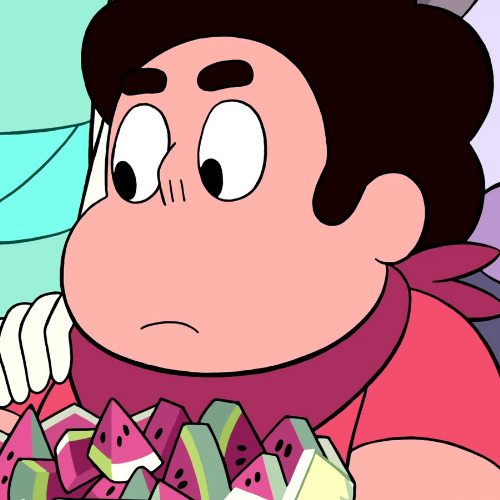
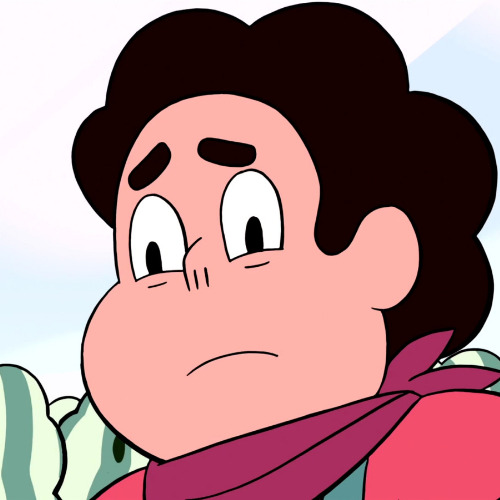
steven icons
#steven universe#steven universe icons#icons steven universe#su#su icons#icons su#steven#steven icons#icons steven#younger steven#younger steven icons#s1#season 1#1x34#watermelon steven#steven universo#steven universo icons#cute#farmer#hat#su edits#su fans
56 notes
·
View notes
Text
thanks @weepingwillowyangel & @memoryofalifetime for tagging me, this was fun!
rules: list ten songs you’ve been listening to recently and tag ten people
Yellow Flicker Beat - Lorde
I HATE EVERYBODY - Halsey
Shampain - MARINA
Watermelon Sugar - Harry Styles
Buzzcut Season - Lorde
You should be sad - Halsey
Haven’t You Noticed (I’m a Star) - Olivia Olson for Steven Universe
Lights Up - Harry Styles
Breaking Down - Florence +The Machine
Sweet Talk - Saint Motel
I tag @bitch-i-really-mightwing @the-moons-raes @cahsmere-sweaters @toomanyotpsforyou @daydreams-of-fairytales @digitalis-obscura @lucypcvensie @luke-skywalker-is-a-gay-icon @bread-making-vikings @breathethatfire
7 notes
·
View notes
Note
13, 14, 18, 21, 40, 51, 76, 87, 99
13: what’s something that made you smile today?
this video from saveafox on youtube.....i’m obsessed w this channel
14: if you were to live with your best friend in an old flat in a big city, what would it look like?
a lot of bookshelves and a cozy reading nook, exposed brickwall, lots of lil plants
18: tell us about something dumb/funny you did that has since gone down in history between you and your friends and is always brought up.
well there was that one time in high school i tried to open a soda and it blew up and scared the shit out of my deskmate/best friend sjdkfhksdh the teacher looked at me like i was insane
21: talk about your favorite bag, the one that’s been to hell and back with you and that you love to pieces.
well it’s a small black leather bag my mom bought for me in 6th grade, i can’t wear it anymore cuz it looks Rough but i could never throw it out :’)
40: think of a piece of jewelry you own: what’s it’s story? does it have any meaning to you?
i actually don’t really own any jewelry anymore cuz i don’t like it. i remember my mom bought me my first pair of earrings with her first paycheck and i lost them ksjdfhkjsdh
51: think of a person. what song do you associate with them?
i thought of my best friend and the song i most recently associate with her is kacey musgraves’ butterflies cuz i’ve been pestering her to listen to it sjkdfhskd
76: is there anything you should be doing right now but aren’t?
not really tbh i’m taking it easy this post-graduation summer
87: what are some movies you think everyone should watch at least once in their lives?
i don’t watch that many movies myself but mean girls ! it’s iconic
99: list some songs that resonate to your soul whenever you hear them.
for this i’m gonna just go vibe wise cuz lyrics don’t rly matter to me: the 1975 - somebody else, arctic monkeys - 505, watermelon sugar - harry styles, lonely weekend - kacey musgraves, mystery of love - sufjan stevens
send me a number from 1-100
2 notes
·
View notes
Text
Every time I remember the fake episode title leaks of SU like “Steven vs. Rose” or “Goodbye Dad” I laugh cuz some of the most important moments/iconic scenes of the series happened in episodes called “Chille Tid,” “Friend Ship,” “Catch and Release,” “Super Watermelon Island,” “Alone at Sea,” “The Zoo,” “Are you my dad?” “Lars’ Head,” “Off Colors,” etc, etc and if we saw those leaked we’d probably be really confused
10 notes
·
View notes
Text

watermelon tourmaline icons from change your mind
both unedited base icons & edited icons available
likes & reblogs are welcome & appreciated!
free to use and edit
100x100 in size
15 in total
how to support the blog
unedited icons
edited icons

#steven universe#watermelon tourmaline#steven universe icons#watermelon tourmaline icons#change your mind#steveniconverse#used dropbox for this set since there's only 15
12 notes
·
View notes